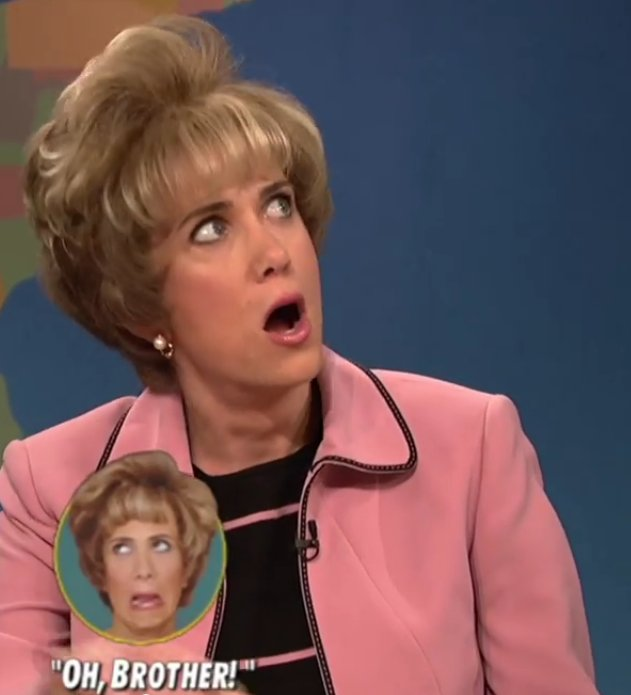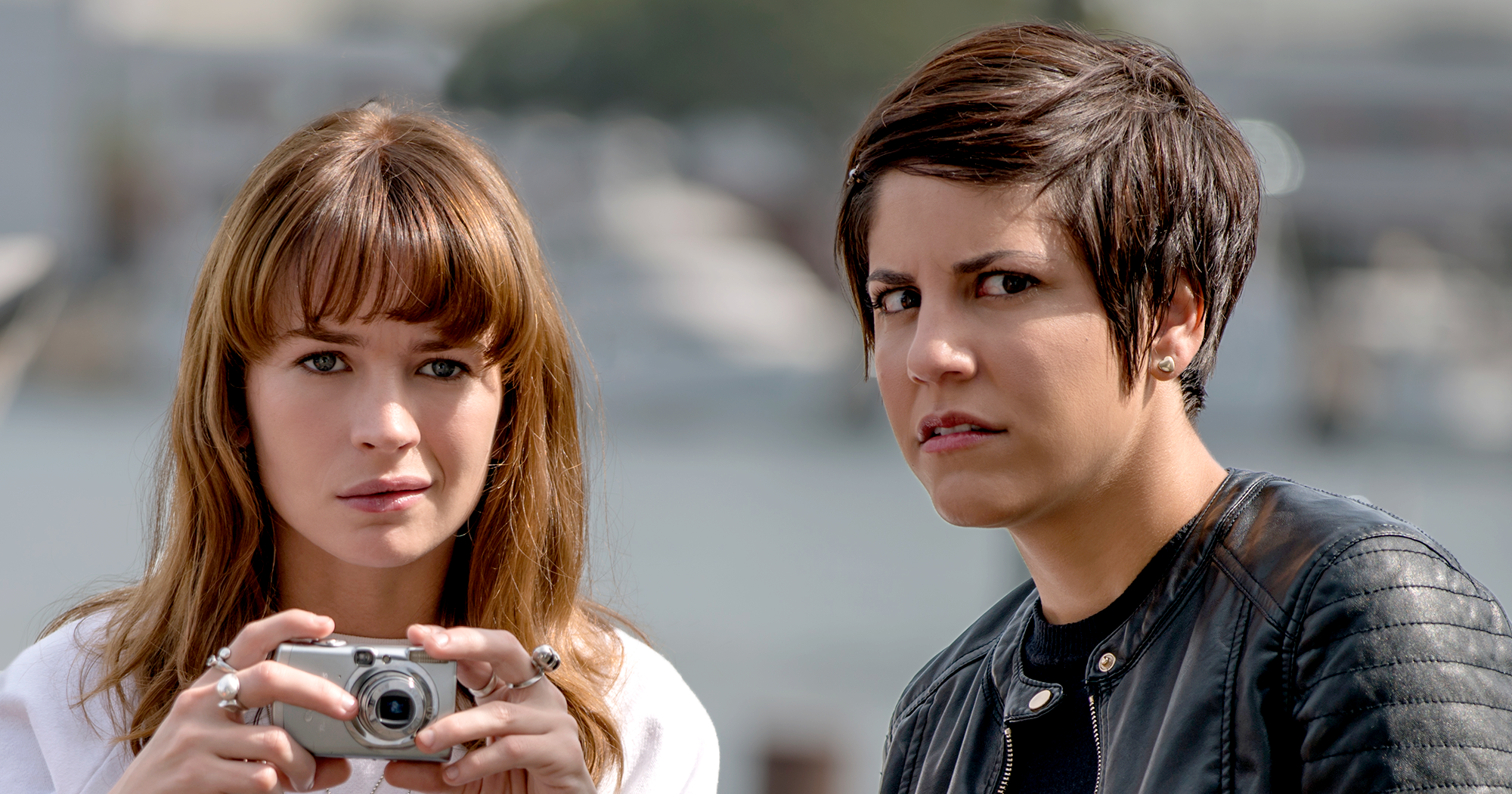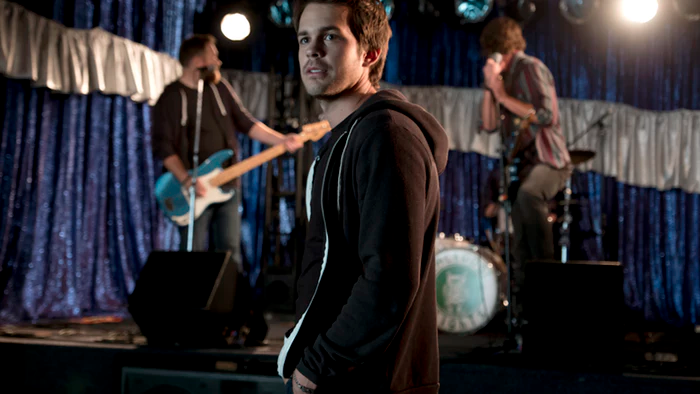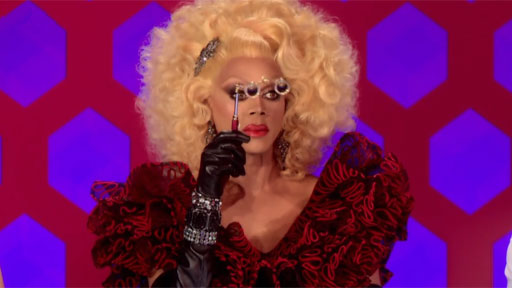
Ugh.
GIRLBOSS, Netflix’s newest push, is loosely based on Sophia Amoruso’s autobiography, #GIRLBOSS, the story of how she went from nothing (kind of) to CEO of the hugely popular vintage re-seller, Nasty Gal. We open in far-off 2006 with Sophia (Britt Robertson), a 23-year-old San Francisco resident, ranting to an old lady about how hard it is to be 23. The old lady replies, “hard to believe you’re the future . . . thank God I’ll be dead.” This was the most relatable line of the series, because somehow this show about a 23-year-old girl made me, a 23-year-old girl, feel like Kristen Wiig’s Weekend Update character, Aunt Linda.

Me, every five minutes
I knew enough going into the series that my beef was primarily with creator Kay Cannon, former producer of 30 ROCK and writer of one of my all time least favorite franchises, PITCH PERFECT. I will say that 30 ROCK has influenced me in ways that even I don’t understand yet. It was a huge starting point in my education about sexism and racism in both the real world and the film and television industry. “Starting point” is the key phrase here—Tina Fey is basically your aunt who’s always down to trash talk men, but as you go deeper you find some unaddressed internalized misogyny and racism so you just stick to weird stories about her daughter. If Tina Fey is your second wave aunt, Kay Cannon is your cousin who calls herself a feminist, but rolls her eyes when you call her out on cultural appropriation and has never heard the word “intersectionality” in her life.
Like the PITCH PERFECT series, GIRLBOSS lacks a coherent and engaging storyline. Besides the inherent White Feminism™ of the whole ordeal, there’s just nothing particularly interesting about Sophia’s story. She’s a white girl from San Francisco whose reason for dropping out of college is “everything you wanna learn, you can look up online.” Her dad is more than willing to help her out but she outright rejects him, just to continually get herself fired and try to find creative ways out of having to actually grow up. And listen! I am a huge fan of stories about young people on the precipice of adulthood—from FRANCES HA to RUSHMORE, there is nothing more compelling than a coming-of-age story. But when you take on a trope that’s been done so often and so well, there has to be something extra to keep your audience hooked.

Same, Annie
GIRLBOSS’ draw is feminism . . . I guess? This is the main area that trips me up with this show and many like it. What you’re watching is not inherently a feminist show simply because it’s by and about women—that’s such a diluted “yas kween” brand of feminism that I, and many others, just won’t accept it anymore. To make a feminist television series or film, you have to make an actual statement. Calling it “GIRLBOSS” doesn’t make it a huge feminist achievement because, wow! Girls can be bosses! Dope reminder! There’s just nothing backing it up. We’re presented here with a privileged white girl who spouts buzzwords so she sounds “Woke™.” At one point, a white woman in a band says, “Before we go I wanna remind everyone that the basic tenets of capitalism and democracy contradict each other.” Like . . . Yeah . . . Is that a joke? Sophia’s friend yells, “Get over here you dirty slut!” Sophia asks if we’re reclaiming the word and her friend says no, “it’s just fun to shout across a room.” Why am I supposed to laugh at that? At this point I’m not even questioning the show’s feminism, I’m literally just not understanding the fundamentals of these “jokes.” They go away by episode two by the way, and the only Girl Power™ talk is in episode nine when Sophia randomly starts talking about how collaborative and hard-working girls are just so she can get her way again.

Honestly would’ve preferred a Young Neil spin-off
The seams of GIRLBOSS are uncomfortably visible—the show is transparently trying to mimic the “we already have inside jokes, it’s your job to keep up” friendship that Abbi and Ilana of BROAD CITY share, while also attempting to evoke the constant on-and-off tension between the girls of GIRLS. Sophia and best friend Annie’s relationship is explored in episode five, in which Annie storms out of Sophia’s apartment because (remember it’s 2006) Sophia will not include her in Nasty Gal’s top eight on MySpace. This leads Sophia to reflect on the ups and downs of her relationship with Annie, which ends up being a highlight reel of moments in which Sophia was a terrible friend and for some reason Annie continues to forgive her. In episode 10 Annie defends Sophia in an internet thread, in a sequence that’s actually pretty funny and novel (all the commenters are sat around a table, new commenters popping in and out). When Sophia refuses to give her a job even though Annie does literally everything for Nasty Gal anyways, Annie returns to the thread and tears Nasty Gal and Sophia to shreds. It’s petty, but ultimately there’s no reason for Annie to remain friends with this ungrateful person!
Sophia is hands down the worst part of this overall underwhelming show, and I truly could not tell you if I’m supposed to be rooting for her or not. Even GIRLS gives the viewer reasons to root for Hannah and friends—while you watch them make irrevocably bad decisions, you still hope they’ll find their way out because they each have at least two redeeming qualities. I could not tell you one redeeming quality about Sophia. She is driven, but her drive comes from her desperate need to find an easy way out of adulthood. She is a brat to her father, her best friend, her boyfriend, her best friend’s boyfriend, and basically every single person she interacts with. She’s even a brat to RuPaul! Why would you talk to Mother Ru like that!!!! By the way, why the HELL is RuPaul in this??? Do not waste her time!!!

Me, looking for redeemable qualities in this show
So much of this show rests on the shoulders of Britt Robertson, and those shoulders are WEAK. Robertson is exactly the brand of generic skinny white girl who knows how to pout her lips in a certain way that makes you think huh . . . She might just be a Quirky Girl! She’s not. She lacks any semblance of charm and in place of actually acting, she adds this inflection to certain phrases that at its core feels probably racist. Like maybe if there were more than two (2) people of color on this show someone might have stopped her! The stand-out performances belong to Ellie Reed as Annie—a character who starts out annoying and ends up the most likeable person on the show—and Melanie Lynskey as Gail, a fellow vintage seller who has major beef with Sophia. Both characters’ stories would have been far more interesting fodder for a television series than Sophia’s, and it’s always a letdown when Sophia bursts into one of their scenes to remind you that unfortunately this show is about her.
Ultimately, GIRLBOSS’s biggest flaw is that it’s just boring. I mean you know what happens—the company blows up, gets involved in some ugly lawsuits (firing women right before they take their maternity leave, yikes!), and, as of November 2016, files for bankruptcy. GIRLBOSS feels like a story that doesn’t really need to be told. There’s nothing exceptional about Sophia or her story—she basically just whines about how her dad wants to support her even though she wants to be independent, whines about her ENTRY LEVEL job that gives her HEALTH INSURANCE (I don’t have the strength to go in on this one I am at a loss for words), and creates more reasons for herself to whine. I’m just so ready for this lackluster brand of prepackaged Feminism™ to be over. Until then, I recommend watching THE MINDY PROJECT, INSECURE, and CRAZY EX-GIRLFRIEND to actually learn about the experiences of women in the white male-dominated workplace. God, even VEEP delves more into actual gender inequality than this. And for an even shorter education just watch this video.
Verdict: Do Not Recommend
